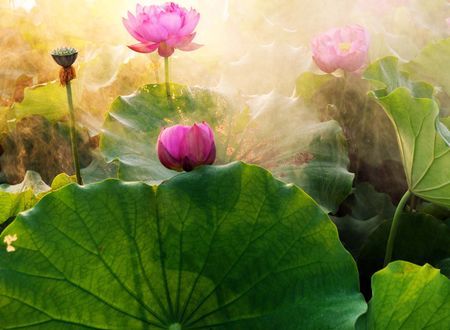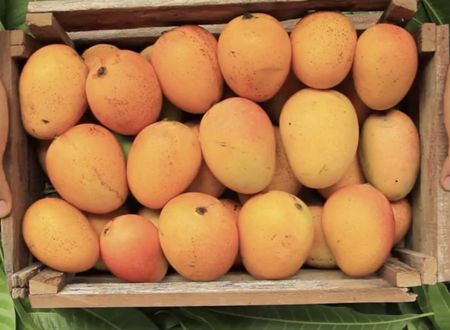Let me elucidate further, as I wrote earlier – the theory, the Law of Karma. Today, I shall go over the four types of karma as captured in various Vedic texts in Hinduism. As always, I may offer you scriptural definitions – though the exposition remains my personal opinion, it may be a deviation from what is known already.
A while ago, I wrote about the three types of karma and how they leave an imprint on your being, a karmic trail if you will. That was from the angle of the execution of any karma, be it mental, physical, or verbal. You can read up more on that here. The classification hereunder is of four types. It is about the realization of such imprints. As follows:
1. Prarabdha, matured, karma
Imagine a fruit, an apple, on a tree. It has come of age and it is ripe. Either it is picked in time, or it detaches itself from the tree and lands on the ground. It cannot remain on the tree forever. Similarly, prārabdha is ripe karma. At some point in time, you planted a tree, and the fruit is ready to drop today. Regardless of your desire or your preference, it has taken its course, much like the arrow that has left the bow.
Once you perform any karmic act, it is registered in the universe, and it will come to fruition in due course. There is no escape. Whatever you are going through in life presently, note the word presently, that you have no control over, it is your prārabdha. It does not mean you cannot change your future. Prārabdha is that which has matured. Any karma that may mature in the future is not prārabdha, and it falls under the second category:
2. Sanchita, stored, karma
This is your store of karma. Not all fruit on the tree will mature the same day, and it will be laden again the next season and the next, and so forth. It is for this reason that life is greatly cyclical for an overwhelming majority of people. Why? If you plant apple trees, when the season comes, you will have plenty of them, and, if you plant wild berries, however attractive, their thorny yet protective bushes will flourish too during their seasons.
It is often the case that problems rarely come singly. They come in hordes, so do good times. There is something unique about sanchita karma; it can be changed! If you can go to the source of your apples or baneberries, you can choose to nurture them or destroy them altogether. The key is going to the source.
3. Agami, forthcoming, karma
Imagine you have entered the apple garden. You performed karma, and you exercised choice, forced or voluntary, regardless. Based on this karma, you are bound to perform certain other karmas such as the sighting of the apple trees, experiencing the fragrance, and the definitive karma of exiting the orchard is also waiting to mature. The importance of this karma cannot be underestimated or overstated.
The choices you make today have a direct bearing on your future tomorrow, what you do in the present moment determines what unfolds in the next. Āgāmī karma is mandatory karma. You have little choice, if any. If you have entered the orchard, you will have to perform the action of exiting as well, sooner or later. That’s Agami Karma. However, if you could either change the store of your sanchita karma or exercise due care in the present, this one changes automatically. And how can one change their sanchita karma? Continue reading.
4. Vartamana, present, karma
It is also known as kriyamāṇa, actionable, present karma, the one that is being done. There is another term, perhaps better, called puruṣārtha, effort, karma.
Let us assume you no longer want apples. You can chop down the trees; you can have them uprooted. You will still have to find a way to manage or dispose of the wood, rotting apples, green waste, and the rest of it, but it is a one-off, albeit intense, effort. After that, there will be no more fruit waiting for you year after year. You may simply choose to sow wheat and harvest it after a few months, clearing your karmic field on a regular basis.
The pertinent question is, how do you know if you are creating new karma or going through the results of your past karma?
The answer is quite simple: when you do something out of choice you are creating new karma, and, when you are forced to do something, you are simply repaying your karmic debt.
The former will have the consequences, good or bad, drawn up for you; the latter can be tended by managing your karmic store or sanchita karma in other words.
In essence, I am suggesting that you can bring about change in your life, and you can affect the desired change, provided you are patient and persistent. So, can you become the next Bill Gates or a future Buddha? Well, you are mistaking change for a goal.
That said, if you can travel back in time and build an operating system like Bill Gates did, think like he did, and act like he did when he did, you will become another Bill Gates. If you can relinquish as Buddha did, engage in intense practices the way he did, in the manner he did, for the time he did, you will become Buddha.
Bill Gates became Bill because he chose not to become IBM or Apple; he stayed true to his own vision, his own design. Buddha became Buddha because he pursued his own path; he chose not to become like some other preacher or sage, he chose to discover himself, his own work, and he became Buddha.
Your fulfillment is not going to come from becoming another Bill or another Buddha; it is going to come from creating your own home. However welcome you may be in another home, however hospitable your host may be, a while later, you no longer feel at home. You only feel at home in your own home. You may have ideals or idols, but it is important to be yourself, to discover yourself, your own truth.
The choices you made yesterday, voluntary or otherwise, have landed you where you are today, and the choices you are making today will dictate your tomorrow. Hence, it is paramount that you pay attention to your present actions, your present thoughts, and the range of choices available in the future is a direct function. It is a derivative of your present actions, your future, well, your life, in fact, depends on it.
Peace.
Swami
A GOOD STORY
There were four members in a household. Everybody, Somebody, Anybody and Nobody. A bill was overdue. Everybody thought Somebody would do it. Anybody could have done it but Nobody did it.
Don't leave empty-handed, consider contributing.It's a good thing to do today.









Comments & Discussion
18 COMMENTS
Please login to read members' comments and participate in the discussion.